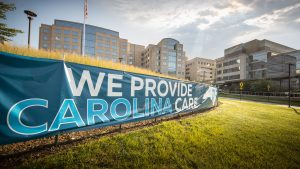 By Bobby Hundley, UNC Health Foundation
By Bobby Hundley, UNC Health Foundation
Early in the COVID-19 pandemic, as increasing numbers of patients dealing with acute infections were being treated across the UNC Health system, doctors in the UNC School of Medicine’s Department of Physical Medicine and Rehabilitation began to prepare for an additional concern facing survivors of the virus.
According to a University of Washington study featuring the largest cohort of COVID-19 patients, around 30 percent of all survivors will experience symptoms related to “long COVID”, or COVID-19 long haul syndrome. Common symptoms include persistent fatigue, weakness and shortness of breath as well as cognitive and mental health challenges that can last for weeks, months or even longer.
Under the leadership of PM&R department chair Joshua Alexander, MD, and assistant professor JM Baratta, MD, early detection of long-haul symptoms paved the way for the creation of the UNC COVID-19 Recovery Clinic, a new and collaborative approach to serving this growing population of patients who will continue to emerge as a result of the pandemic.
MAKE A GIFT TODAY
Your gifts can help COVID long haulers regain their quality of life.
For Alexander, the still unclear nature of this condition made it an obvious priority for UNC Health.
“What’s the future going to be like for people who have long-hauler syndrome? We don’t fully know the extent and length of their impairments, and it’s that unknown that’s scary for everyone,” Alexander said. “One thing we want people to know is that they aren’t alone. It’s not one person out of 1,000, it’s going to happen to a lot of people and we are working to make sure that there will be services in place to support and care for them and also educate their local providers.”
Alexander also saw the strengths of both the Department of Physical Medicine and Rehabilitation and Baratta, who serves as co-director of the clinic, as a perfect match to host this emerging program.
“We looked throughout the department for who could be a leader for this kind of program, and Dr. Baratta was a natural fit,” Alexander said. “Our medical specialty is trained to look at the whole person and address all their needs from a coordinated perspective. We are built to provide a collaborative, multidisciplinary approach to care, and the COVID Recovery Clinic will adopt that approach and extend it to all departments across our medical center and the UNC Health system.”
Incorporating Research and Education
“First and foremost, our clinic is about patient care, to improve the health and well-being of our community,” Baratta said. “But research is also important because we need to learn more about this syndrome so we can develop new knowledge and use that knowledge to better treat our patients and share with others across our state and throughout the country.”
Baratta said that long-hauler patients have shown an affinity for helping with potential research opportunities with the hope that their experiences can better assist both patients and healthcare providers in the future.
“Our patients are very engaged in post-COVID care,” Baratta said. “They want to share their stories, and I think that will facilitate research in the future.”
And while education is important to share with patients to help manage their symptoms away from the clinic, sharing information and educating healthcare providers across the state is also a priority. “Education is going to be critical so that once they get care at UNC Health, their local providers are going to be better prepared to care for them,” Alexander said. “We want to augment the care they receive locally by focusing on the special health care needs of long haulers.”
“Happy, healthy and independent”: Philanthropy For A Better Now and a Better Future
While initial funding has allowed Dr. Baratta and his team to get the clinic started, philanthropic giving will be tremendously important to the sustained success of the program.
In the short term, funding for positions such as a nurse coordinator, a dedicated social worker and a scheduler is a top priority.
“These positions are vital to the care coordination necessary for this complex population,” Alexander said. “It’s a truly multi-disciplinary collaboration that opens up the services to everyone in our system. We want to treat the whole person and do what we can to help them live lives that are as happy, healthy and independent as possible.”
In addition to serving the needs of the COVID long-haul patients, Dr. Baratta sees additional opportunities in the future.
“We need funding for the next several years, but better yet I think it would be great to keep this kind of clinic open in perpetuity,” Baratta said. “To care for patients who are recovering from complex hospital stays, particularly in the ICU, would be an important service to provide.”
And while the location of the COVID-19 Recovery Clinic in Chapel Hill can make it challenging for patients who face barriers to care, private giving will also be utilized to provide increased access to care for patients in need. Whether through offsetting co-pays and transportation costs or funding increased education to spread information on the treatment and rehabilitation of long haul patients to providers across North Carolina.
In addition to the COVID-19 Recovery Clinic, philanthropic funding is helping PM&R in the process of building a new 40-bed inpatient rehabilitation center in Hillsborough to facilitate further rehabilitation and recovery for patients following hospitalization.
The facility, which is now expected to open in early 2022, will provide state-of-the-art rehab facilities, a one-of-a-kind inpatient medical maker space as well as access to complementary and alternative health options such as acupuncture, mindfulness, massage therapy and more.
“This will be a beautiful facility where patients who have gone through acute hospitalization can return to themselves,” Alexander said. “To recover their function and enjoy the things that make life meaningful to them.”
For more information on supporting the Department of Physical Medicine and Rehabilitation or the COVID-19 Recovery Clinic, please contact Ryan McGuirt, Director of Development, UNC Health Foundation at Ryan_McGuirt@med.unc.edu.
